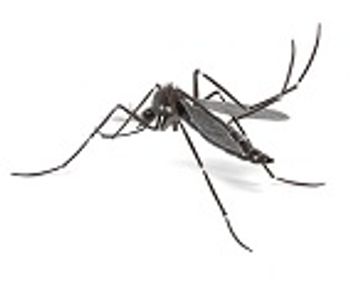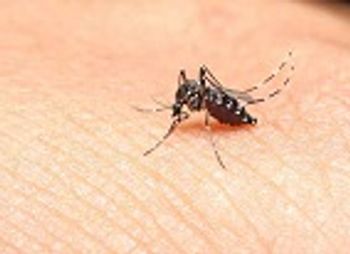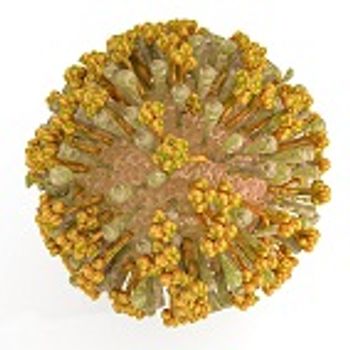
Researchers have identified the first-ever reported cases of yellow fever in China, tracing their origins to travelers from Angola, where there is an ongoing outbreak.
Brian P. Dunleavy has been covering health and medical research for more than 25 years, for United Press International and EverydayHealth.com, among other outlets. He is also the former editor of Infectious Disease Special Edition. In addition, he has written on other subjects for Biography.com, History.com, the Village Voice and amNewYork, among others. He holds a master’s degree from the University of Missouri School of Journalism.

Researchers have identified the first-ever reported cases of yellow fever in China, tracing their origins to travelers from Angola, where there is an ongoing outbreak.

The number of expecting mothers who opt for annual vaccination for influenza during pregnancy remains relatively low; however, the results of a new study suggest this may be changing—and that there are obvious benefits for immunization for newborns.

Makers of specially modified mosquitoes designed to combat the Zika virus have approached regulatory bodies in multiple countries seeking approval to use their products in the fight against the mosquito-borne virus.

Although virtually eradicated in some parts of the developed world, spinal meningitis remains a significant healthcare challenge in the so-called “African meningitis belt,” a region of 26 countries that stretches from Senegal to Ethiopia.

The findings of a recent study coordinated by the Centers for Disease Control and Prevention (CDC) and local departments of health in southern Texas highlight the risk for localized outbreaks of Dengue fever in the region and other areas of the United States with similar climatic and environmental conditions. This is particularly alarming as Texas is already well-within range of an outbreak of another vector-borne illness: Zika virus.

The US government must allocate additional resources toward global research and development (R&D) efforts working toward solutions for historically “neglected” diseases such as malaria, tuberculosis, and HIV/AIDS in order to meet the challenges posed by them, a new report has concluded.

Several school districts in India are being asked to take proactive steps to contain Dengue fever locally as monsoon season approaches.

New legislation designed to bolster food safety regulations in the United States largely hands increased power to state agencies overseeing the farming sector.

Researchers from the National Infection Service at Public Health England (PHE) in the UK may have identified the perfect platform for trials of future vaccines and antivirals for the management of Zika.

Opinion polls indicate the general public remains relatively unconcerned about the threat of Zika, despite the existence of confirmed cases in the United States.

An ongoing malaria outbreak in Colombia has been linked to illegal mining practices in the South American country.

Executives at Dole Food Co. Inc. knew about an outbreak of Listeria at the company’s salad production plant in Springfield, Ohio for more than a year before shutting it down in January.

Antibiotic-resistant pathogens continue to make the management of some bacterial infections a significant clinical challenge.

Researchers have found a potential solution for the troubling spread of Zika virus in Brazil and across the Southern hemisphere—and it’s bacteria.

Researchers at the University of North Carolina-Chapel Hill have identified what they describe as a new, “SARS-like” virus that will not need to adapt in order to infect humans.

The ongoing refugee crisis facing European countries as a result of conflicts in the Middle East presents a potential public health challenge to governments already struggling with the influx of hundreds of new migrants on a daily basis.

Adding to the troubling data worldwide on antibiotic resistance, researchers have found that even trace concentrations of antibiotics, such as those found in sewage, are sufficient for bacteria to maintain resistance to most broad-spectrum agents.

The on-again, off-again debut of the controversial film “Vaxxed: From Cover-up to Catastrophe” at the Tribeca Film Festival in March once again made the debate surrounding pediatric vaccination headline news.

Researchers analyzed archived blood donor samples collected during and after the 2014 epidemic of Chikungunya virus in Puerto Rico, and found that as many as 2 percent of the samples tested positive for Chikungunya RNA.

Study suggests that the risk of Zika virus transmission is particularly high in the southeast as well as in south Texas, where locally-acquired cases of Aedes-transmitted viruses have been reported previously.

The impact of the water crisis in Flint, Michigan now includes an infectious disease component—namely, an outbreak of Legionnaire’s disease—and it has sparked a debate among health officials and infectious disease experts.

Researchers find evidence to suggest virus strains in the most recent outbreak in the Americas evolved from an Asian lineage.

Researchers have revealed that the disease has been circulating in the region since at least January of 2015.

The Obama administration recently announced plans to shift nearly $600 million in funds designated to battle the Ebola epidemic toward the fight against Zika.

The findings of a new study reinforce the value of making insecticide-treated nets and indoor residual spraying of insecticides universally available—even in countries where the mosquitoes that transmit disease bite primarily outdoors.

Researchers at Jiangsu University in China have demonstrated that whole genome sequencing can be used to confirm findings from traditional bacterial genotyping methods to identify outbreaks of MRSA and control nosocomial transmission.

The findings of a recent study suggest that knowledge of cholera and its symptoms is sorely lacking among female caretakers in the Indian sub-continent—despite the fact that the disease has been present in the region for centuries.

Chikungunya virus has been reported in the United States, and clinicians here must now be prepared for patients presenting with its symptoms.

Study shows that nitric oxide may inhibit infection-induced neuroinflammation.

An international team of researchers believes they may be on the verge of identifying biomarkers that can be used to predict disease course in dengue fever, thereby enabling clinicians to triage patients at higher risk for severe forms of the mosquito-borne infection at an earlier stage.